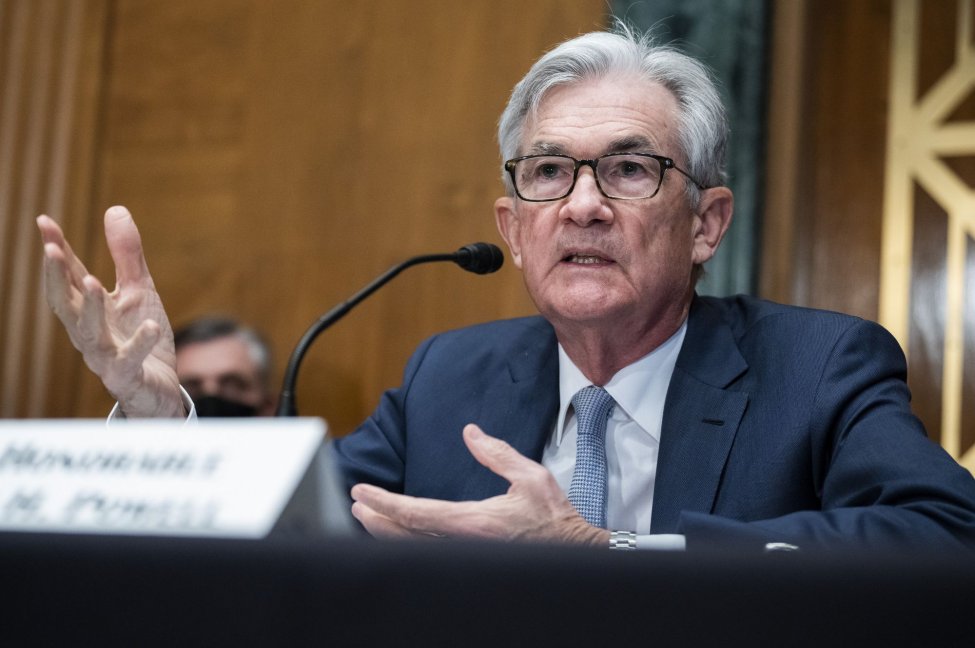BREAKING: Federal Reserve Finally Cut Interest Rates
18.09.2024 21:00 2 min. read Alexander Stefanov
Federal Reserve meetings usually follow a predictable pattern, but this week’s Federal Open Market Committee (FOMC) gathering was shrouded in uncertainty.
During their two day meeting, the Federal Reserve announced a 0.50% interest rate cut – the first one in the past 4 years.
Up until now, the benchmark rate stood at its highest point in 23 years, after the central bank introduced a flurry of rate hikes to tame the pandemic’s high inflation.
The views on the potential consequences of this rate cut however are mixed. There is a debate going on about whether this cut will have a negative or positive impact on different markets.
Speaking at the Token 2049 conference on September 18, BitMEX’s Arthur Hayes stated that the rate cut could lead to a crypto market crash.
And he is not the only one who has doubts about the positive impact of the rate cut, not just for crypto, but for the stock market as well.
Additionally, a group of Democratic senators, led by Elizabeth Warren, were pressing Federal Reserve Chair Jerome Powell to implement a significant 0.75% reduction in interest rates to protect the U.S. economy and avoid recession.
On the other hand, Tom Lee from Fundstrat predicted a major stock market rally following the FOMC meeting.
“By itself, one rate cut isn’t a panacea for borrowers grappling with high financing costs and has a minimal impact on the overall household budget,” noted Greg McBride, chief financial analyst at Bankrate. “What will be more significant is the cumulative effect of a series of interest rate cuts over time.”
-
1
BlackRock’s IBIT Bitcoin ETF Surpasses 700,000 BTC in Record Time
08.07.2025 19:00 2 min. read -
2
Bitcoin Tops Crypto Social Buzz as $110,000 Milestone Fuels Market Debate
04.07.2025 8:15 3 min. read -
3
Veteran Trader Peter Brandt Shares Simple Wealth Strategy with Bitcoin at Its Core
30.06.2025 15:00 2 min. read -
4
Mysterious $8.6B Bitcoin Transfer Sparks Speculation Over Satoshi-Era Wealth
05.07.2025 15:00 3 min. read -
5
UniCredit to Launch Structured Product Tied to BlackRock’s Spot Bitcoin ETF
01.07.2025 17:53 1 min. read
Crypto’s Top Narratives in Focus, According to AI
A fresh breakdown from CoinMarketCap’s AI-powered narrative tracker reveals the four most influential crypto trends currently shaping the market: BTCFi & DePIN, U.S. regulatory breakthroughs, AI agent economies, and real-world asset (RWA) tokenization.
Strategy’s $71B in Bitcoin Now Ranks Among Top 10 S&P 500 Treasuries
Seems like Strategy has officially broken into the top 10 S&P 500 corporate treasuries with its massive $71 billion in Bitcoin holdings—ranking 9th overall and leapfrogging major firms like Exxon, NVIDIA, and PayPal.
How Much Bitcoin You’ll Need to Retire in 2035
A new chart analysis offers a striking projection: how much Bitcoin one would need to retire comfortably by 2035 in different countries—assuming continued BTC price appreciation and 7% inflation adjustment.
Bitcoin ETFs Attract Over $2 billion in Weekly Inflows: What’s Driving the Gains?
Bitcoin ETFs in the U.S. recorded $2.39 billion in net inflows over the past week, according to data from Farside Investors, marking one of the strongest capital surges since their launch.
-
1
BlackRock’s IBIT Bitcoin ETF Surpasses 700,000 BTC in Record Time
08.07.2025 19:00 2 min. read -
2
Bitcoin Tops Crypto Social Buzz as $110,000 Milestone Fuels Market Debate
04.07.2025 8:15 3 min. read -
3
Veteran Trader Peter Brandt Shares Simple Wealth Strategy with Bitcoin at Its Core
30.06.2025 15:00 2 min. read -
4
Mysterious $8.6B Bitcoin Transfer Sparks Speculation Over Satoshi-Era Wealth
05.07.2025 15:00 3 min. read -
5
UniCredit to Launch Structured Product Tied to BlackRock’s Spot Bitcoin ETF
01.07.2025 17:53 1 min. read


